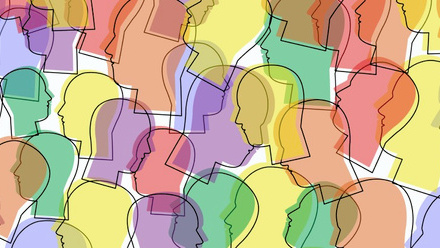How technology is disrupting traditional healthcare in mental health support

Technology is making waves across our healthcare system with solutions that can help inform decision making and improve diagnosis. Systems can now recognise patterns to identify when a patient is at risk of developing a lifestyle-related health condition. While software has been developed to spot hard-to-detect cancers, such as colorectal and skin cancer. And often, these technologies are more accurate and efficient than the human experts.
As well as making advances across general healthcare, technology provides great opportunities for better and smarter mental health support. Technology is making it easier for individuals to be aware of their mental health and access the help, guidance and support they might need for any concerns. And for employers, it offers many diverse options for providing that support.
Easier access to mental health services
For many, the prospect of speaking to a counsellor in the flesh can be daunting. It can also be a challenge to access face-to-face counselling, with the need for referrals or alternatively, paying for expensive private services.
Health benefits, like employee assistance programmes (EAP), commonly offer counselling, with an option to use an online service. Options could include speaking with a mental health professional through instant messaging, video chat or via the humble email. This allows employees to reach the help they need from a more comfortable physical environment, like at home, and at a more convenient time in their day.
It’s worth noting that online therapy could never, and should never, replace long-term traditional therapy. But, it can provide immediate ‘in the moment’ support - providing much needed help in the short-term and be a better, more practical fit in many people’s lives.
Proactive mental wellbeing
There are a multitude of smartphone apps on the market designed to help us look after our wellbeing. They can provide anything from a safe online community to talk about mental health, to guided meditation and mindfulness, to trackers that help keep a record of mood. These apps can be useful for helping manage stress, or an existing mental health issue.
Many health benefits providers offer apps with mental health information and resources, and most importantly, where to go next for help. This provides a starting point for someone, who might not have experience of mental health issues, in helping them identify concerns. It’s a discreet, non-invasive way for employers to provide support, when it could seem overwhelming for an employee to speak up.
These tools are all about encouraging employees to proactively look after their mental wellbeing. With mental ill health being identified as the primary cause of long-term absence in almost a quarter of organisations1, all businesses should be encouraging employees to actively take care of their mental health.
Predictive mental health
It’s likely that you, or someone you know, has used a piece of wearable technology – maybe an activity tracker or smartwatch; think Fitbits and Apple watches.
Wearable technology has huge potential for businesses to support employee wellbeing, and the opportunity for mental health support, comes from the power of tracking. By tracking employees’ health data, employers could help identify and monitor the physical signs of mental health issues among their workforce, such as stress levels.
Despite this, currently, just 9 per cent of organisations offer employees the use of wearable technology to encourage wellbeing1. And only 13 per cent of those collect data from wearable tech1. It might sound scary, but we think this is an area to watch – and it’s likely we’ll see more and more organisations putting this kind of support in place.
Technology is unmistakably transforming how we think about and access mental health support. More and more, we’ll see solutions for mental health designed with our digital lives in mind. Some of the ideas might seem unachievable for some businesses at the moment, but forward-thinking employers will be grasping them with both hands. They’ll be eager to help their employees get easier access to support, encourage them to proactively look after their mental wellbeing, and even identify issues before they arise. It will be fascinating to see how this area innovates and grows.
This article is provided by Simplyhealth.
References
Supplied by REBA Associate Member, Simplyhealth
Our health plans make it easy for people to maintain their health&wellbeing.







